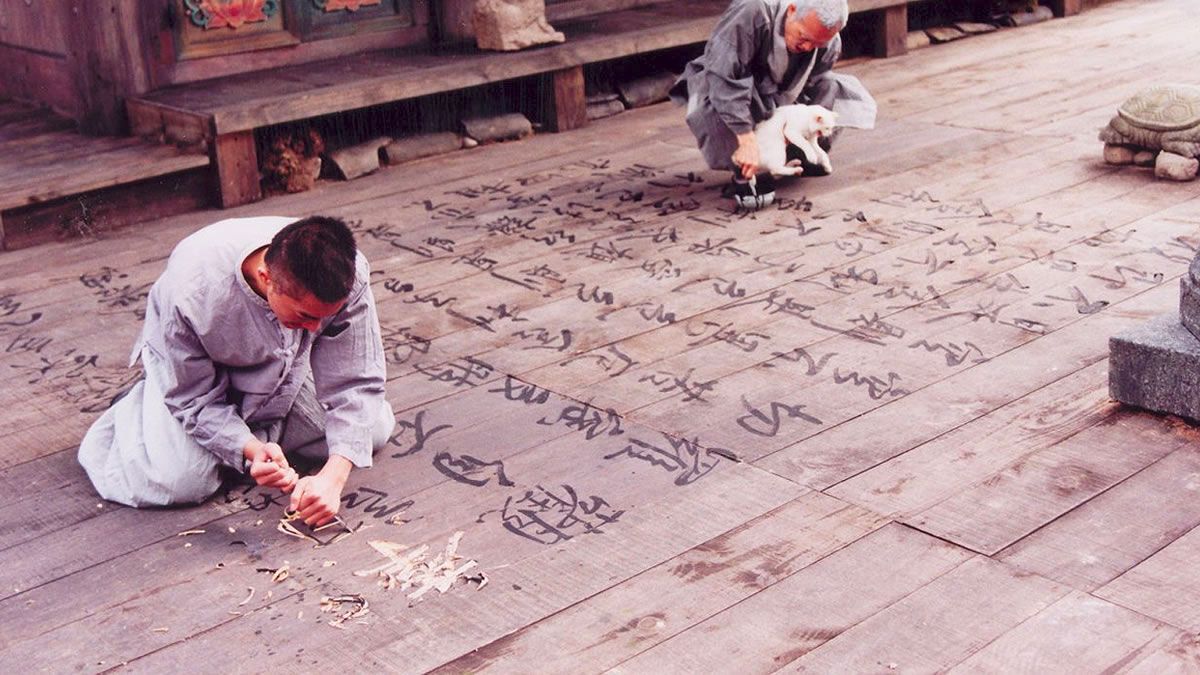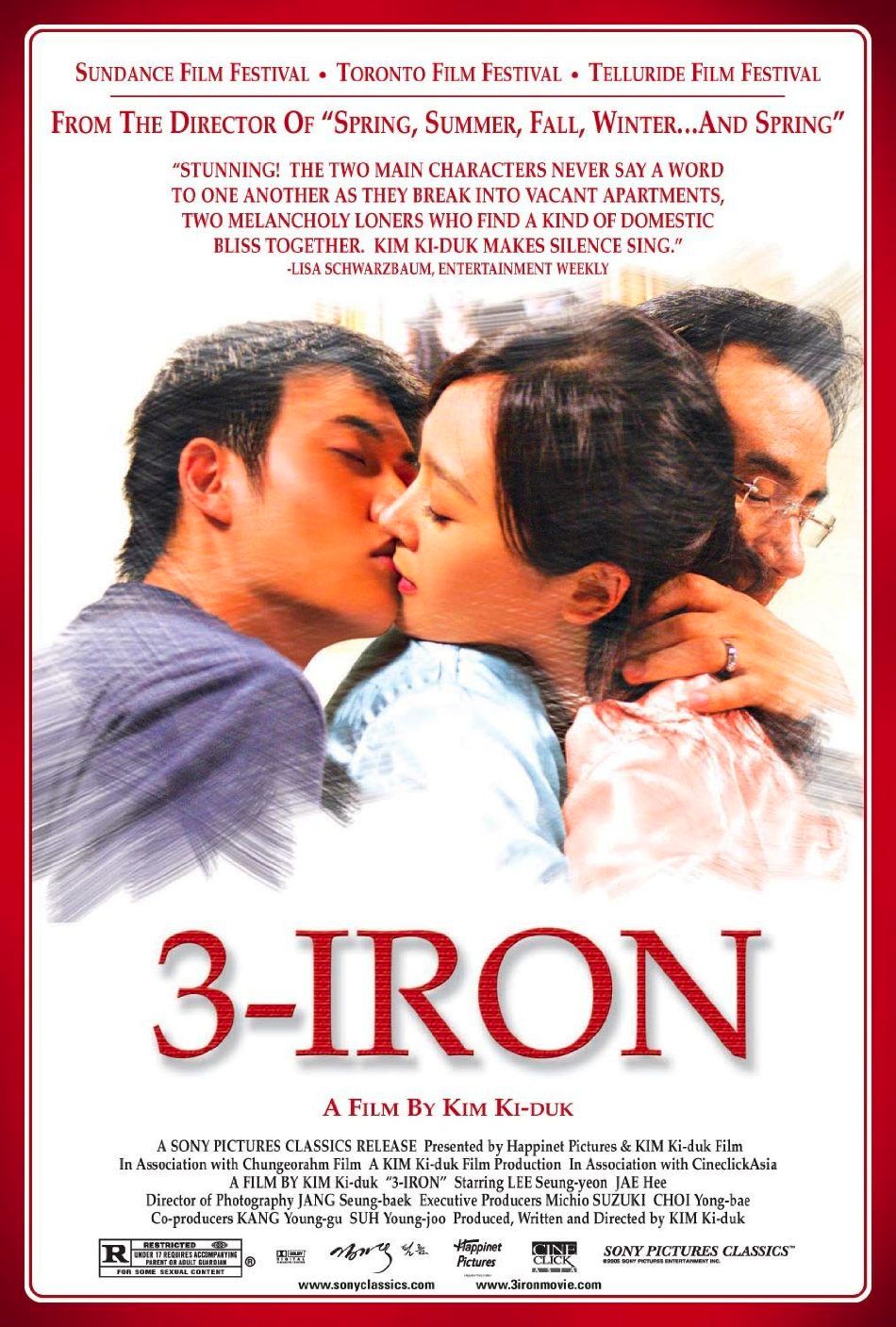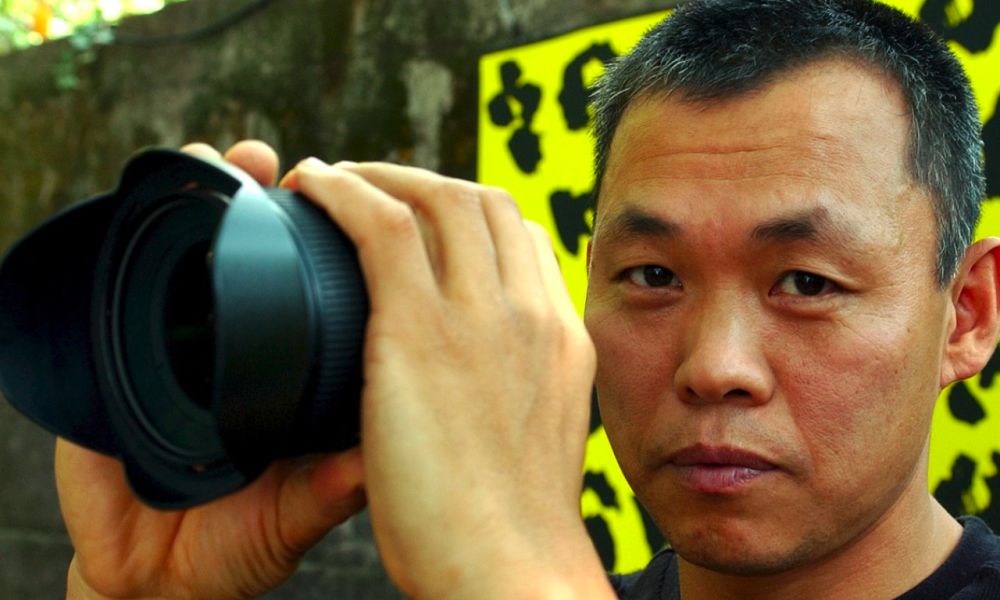"Ki-Duk Kim is a controversial South Korean director of unique, unpredictable films imbued with a rare visceral force. He bravely explores the big issues, such as sin, guilt, shame, love, jealousy, revenge, punishment, redemption, and sacrifice… His best works are centered on moody characters, scarred by unknown sorrow." - Dejan Ognjanovic (501 Movie Directors, 2007)
Kim Ki-duk
Director / Screenwriter / Editor / Producer / Production Designer / Cinematographer / Actor
(1960-2020) Born December 20, Bonghwa, South Korea
21st Century's Top 100 Directors
(1960-2020) Born December 20, Bonghwa, South Korea
21st Century's Top 100 Directors
Key Production Countries: South Korea, Japan
Key Genres: Drama, Psychological Drama, Romance, Urban Drama, Thriller, Erotic Drama
Key Collaborators: Cho Jae-Hyun (Leading Actor), Kim Young-min (Leading Actor), Lee Seung-jae (Producer), Jang Seong-back (Cinematographer), Hahm Sung-Won (Editor), Seo Won (Leading Character Actress), Park Ho-jun (Composer), Kim Jeong-yeong (Character Actress)
Key Genres: Drama, Psychological Drama, Romance, Urban Drama, Thriller, Erotic Drama
Key Collaborators: Cho Jae-Hyun (Leading Actor), Kim Young-min (Leading Actor), Lee Seung-jae (Producer), Jang Seong-back (Cinematographer), Hahm Sung-Won (Editor), Seo Won (Leading Character Actress), Park Ho-jun (Composer), Kim Jeong-yeong (Character Actress)
"Kim made his name with a series of violent yet aesthetically challenging features, including The Isle (2000) and Bad Guy (2001) – the former of which was sanctioned by the British Board of Film Classification for animal cruelty. Subsequently he became a fixture on the international festival circuit with films such as Spring, Summer, Autumn, Winter ... and Spring (2003) and 3-Iron (2004), and he would go on to win the Golden Lion at Venice with his 2012 film Pieta. However, Kim’s directing career was derailed after he was accused in 2018 of rape and sexual assault by three women, along with his regular acting collaborator Cho Jae-hyun. Charges against Kim were dropped for lack of evidence, but he was fined 5m Korean won (£3,480)." - The Guardian, 2020
"Kim’s films cohere into a vivid and compelling body of work characterized by sweeping camera movements and long, richly composed shots. They are populated by characters, uneasy in their social situations, who adopt silence as a protection and whose reactions tend to be brutal; what distinguishes these narratives is what follows this savagery. His films take place in a world sometimes circumscribed by water, but always situated in a cinematic space a couple of degrees sharper than reality." - The Museum of Modern Art, 2008

Spring, Summer, Autumn, Winter… and Spring (2003)
"Kim was one of the first directors of the Korean new wave to break into international consciousness, delivering shocking, but beautifully crafted, dramas including The Isle in 2000 and Spring, Summer, Fall, Winter… and Spring in 2003. While they delivered a new aesthetic and collected a shelf full of festival prizes, several of his films were criticized for animal cruelty or their depiction of extreme human cruelty. In between his fine art, Kim also delivered several duds including The Coast Guard and Dream. Despite his status overseas, Kim and the Korean film industry establishment kept each other at a distance. Kim often handled writing, directing, editing and cinematography tasks himself, allowing him to work on micro budgets and not put himself in the debt of larger firms." - Patrick Frater & Manori Ravindran (Variety, 2020)
"As the high point of a unique auteur journey, Spring, Summer, Fall, Winter... and Spring is probably the supreme filmic expression of the director’s inner world, convincingly articulated in a way which made the portrayal of his demons more gentle than before. Some of his earlier coarseness came back in the films that immediately followed, but at the same time they also underlined the increasing complexity of his cinema. Samaritan Girl and 3-Iron in particular were the hallmarks of an auteur director at the top of his game." - Giona A. Nazzaro (Locarno Film Festival, 2020)
"Like Japan’s Miike Takashi, Kim works quickly and seeks to attain a transgressive edge by emphasising perverse sexuality combined with explicit violence. Like the Japanese new wave “eros and massacre” directors of the early 1960s, Kim’s films try to imagine what the world looks like when repression reaches an unbearable limit. When desire finally emerges, it does so through rape, murder and mutilation." - Mike Walsh (Real Time Arts, 2002)
"I don't make films to serve the audience. I don't try to entice viewers to watch, understand, or even like my films - that's not my job." - Kim Ki-duk
Selected Filmography
{{row.titlelong}}
Kim Ki-duk / Fan Club
Anton Bitel, Gulnara Abikeyeva, Mo Abdi, Massimo Causo, Mike D'Angelo, Naman Ramachandran, James Berardinelli.
Anton Bitel, Gulnara Abikeyeva, Mo Abdi, Massimo Causo, Mike D'Angelo, Naman Ramachandran, James Berardinelli.
"Fan Club"
These film critics/filmmakers have, on multiple occasions, selected this director’s work within film ballots/lists that they have submitted.
These film critics/filmmakers have, on multiple occasions, selected this director’s work within film ballots/lists that they have submitted.


